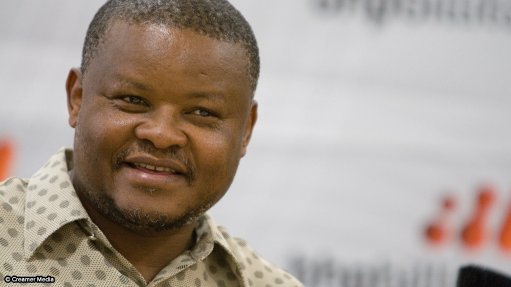
Saki Macozoma
Photo by: Duane Daws
Leading business personality Saki Macozoma has expressed concern that South Africa is not fully aligning its economic and industrialisation plans to areas of future demand, including in the area of electric vehicles (EVs).
Speaking at the launch of a new book authored by political commentator Jakkie Cilliers, titled ‘Fate of the Nation: Three Scenarios for South Africa’s Future’, Macozoma lamented the low levels of investment currently being directed toward generic research, which he said would assist in ensuring the country’s economic policies were alive to “large questions” facing societies.
A board member at Volkswagen South Africa, Macozoma was particularly anxious that South Africa did not miss out in calibrating its future automotive policy with the inevitable growth of EVs, which are expected to take a large share of the future vehicle market.
In fact, recent research published by Bloomberg New Energy Finance forecasts that EVs will account for 54% of all new light-duty vehicle sales globally by 2040, displacing eight-million barrels of transport fuel daily and adding 5% to global electricity consumption.
Despite South Africa’s success in sustaining an automotive industry, initially through the Motor Industry Development Programme and currently through the Automotive Production and Development Programme, Macozoma questioned whether domestic policymakers were fully grasping the significance of the global EV trend.
“We have motor industry programmes that the taxpayer funds to keep BMW, VWSA, Mercedes-Benz and others in the country, but it does not seem like we are thinking about what will happen when the models that are becoming dominant in the world are no longer based on the internal combustion engine.”
All the global original equipment manufacturers still present in South Africa had to compete with other jurisdictions to produce future models for the global market. “But I don’t know that, in five to ten years time, whether we at VWSA will be able to justify why we have a factory in Uitenhage.”
To reach a point where there was certainty on South Africa’s positioning with regards to EVs would require not only a coherent vision, but also consensus across government, cities, trade unions and the industry.
“On the other side of that coin is the fact that these technologies also offer new opportunities that, if you engage with them early enough, could yield major economic advantages,” Macozoma told an audience at the South African Institute of International Affairs in Johannesburg. He noted, for instance, that some of the minerals used in batteries are mined in South Africa.
It was essential that South Africa both understood these new opportunities by investing in research and by incentivising the development of new industries. “The industrial base that we should be thinking about must be compatible with those areas that are growing.”
Cilliers added that, while there was still much uncertainty about what impact the fourth industrial revolution would have on South Africa, manufacturing and employment, there was no question that South Africa would have to invest more heavily in research and innovation if it hoped to secure higher levels of growth and employment.
The high-road scenario outlined in Cilliers’ book, dubbed ‘Mandela Magic’, envisions a rapid transition to a new reformist African National Congress leadership, which adopts a “modernist” policy agenda.
However, even under such a scenario, average yearly growth of only 3.3% would be achieved to 2034, well below the National Development Plan goal of 5.4% a year. Under the other two scenarios, dubbed ‘Bafana Bafana’ and a ‘Nation Divided’ respectively, Cilliers forecasts growth of just 2.3% and 1.5%.
“It’s time to get our house in order if we want to avoid muddling along like Bafana Bafana, while facing the real threat of a blowout, such as in a Nation Divided,” Cilliers concluded.